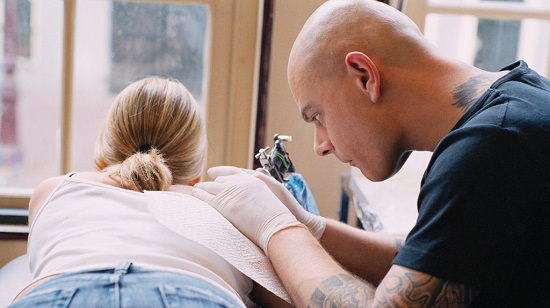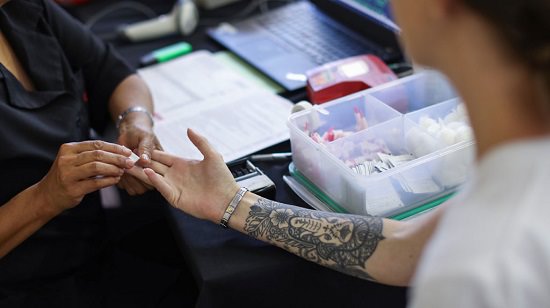Know how soon can you donate blood after getting a tattoo and other related information in this short and descriptive article.
‘People with tattoos can never donate blood’ is the longstanding myth about this form of body art. Let us break down the criteria for blood donation and get to the truth of the matter. In this article, you will learn how soon can you donate blood after getting a tattoo or if you can donate blood after getting a tattoo or not.
Blood Donation
Ideal candidates for blood donation should be over 18 and less than 60 years of age. People with an intent to donate blood must have a hemoglobin count higher than 12.5g/dl. Normal haemoglobin count in Men is 14-18g/dl, and in Women is 12-16g/dl. The eligible donor must weigh more than 45kgs and have normal body temperature at the time of donation.
Professionals recommend a minimum gap of 3 months between donations to replenish the hemoglobin levels. The amount of blood collected per donor at each donation event varies from country to country; ranging from 450 ml in USA, 200ml in People’s Republic of China and 350ml in India among other countries.
Screening and Testing
As a potential donor, screening is done via a general physical examination and a relevant medical history. After this, the professional collects your blood if you are an eligible candidate.
After the donation, the donor blood undergoes up to 13 tests. These tests check for:
- Blood group (A, B, O, AB), Rh type(+/-)
- Abnormal cells, and
- Blood-borne infectious diseases like HIV, Hepatitis B, and Hepatitis C.
The blood bank immediately discards infected blood.
Myths About Tattoo and Blood Donation
People with tattoos can never donate blood. People falsely believe that all tattoos cause infections transmitted via blood donation to recipients, who may already be in a weakened/ vulnerable state. While the tattoo process is invasive: needles are used to introduce a foreign material [tattoo ink] into the body, there is a health and safety protocol to prevent infections. However, if conditions at the tattoo parlor/studio are unhygienic or proper sterilization protocol is not followed [dirty needles or reusing infected ink], there is a risk of getting infections [Hepatitis B, Hepatitis C, HIV]. Irrespective of whether one is donating blood or not, practice great caution while getting a tattoo.
How Soon Can You Donate Blood After Getting A Tattoo
It can take up to 6months after exposure for Hepatitis to develop. So, most countries stipulate that a person can donate blood six months to 1 year after getting a tattoo. This timeline is case-dependent and varies among different countries and hospitals, depending on the policy. Even after the waiting period, certain institutions may refuse blood donations from tattooed individuals who are otherwise perfectly eligible.
Other Limitations for Blood Donation
- People with symptoms of infection like cold or flu shouldn’t refrain from donating blood
- Individuals with bleeding disorders like hemophilia are advised not to donate blood.
- You shouldn’t donate blood if you have recently had blood transfusions.
- Recreational users of Intravenous drugs that hamper the overall health of the user. People who inject chemicals into their body should never opt for blood donation.
- Individuals who have traveled to countries where certain diseases (like malaria) are prevalent should watch out for any symptoms before donating blood.
- People who have or have ever had Hepatitis B or C can never donate blood. This also applies to individuals with HIV and AIDS.
- Individuals with active tuberculosis (TB), sickle cell disease, and those who have had the Ebola virus or Zika virus are restricted from blood donation.
- Pregnancy: a waiting period of 6 weeks after giving birth or having a miscarriage or abortion is advisable before donating blood.
- Recipients of organ and tissue transplants should refrain from donating blood. Likewise, the same goes for people with Creutzfeldt-Jakob disease.
- Individuals with sexually transmitted diseases like Gonorrhoea and Syphilis shouldn’t donate blood to prevent the transmission of such diseases.
- In the US, men who have sexual relations with men regardless of their sexual orientation or identity, must wait 12 months after their last sexual encounter to donate blood.
- Taking certain medications, e.g., blood thinners may render donors ineligible.
It is crucial to disclose relevant medical history at the pre-donation screening.


